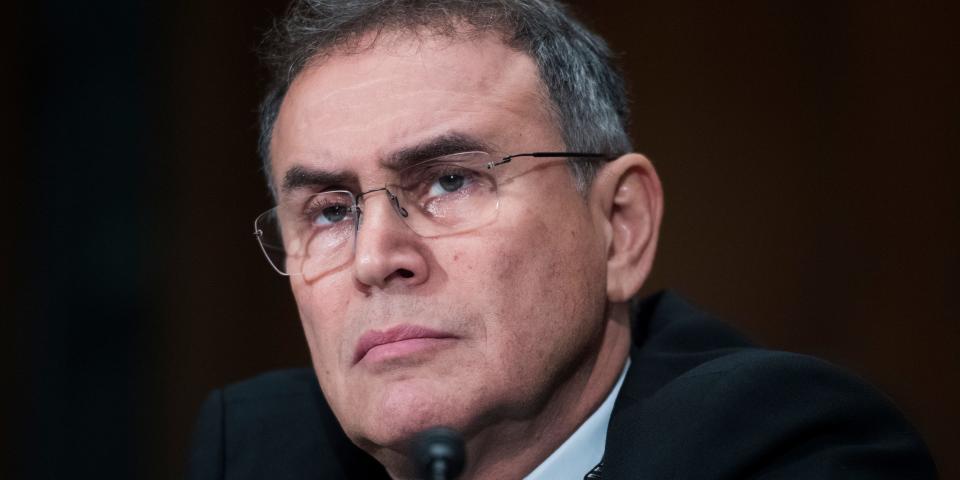The market 'bloodbath is likely to continue' with investors set to lose tens of trillions over next decade, Nouriel Roubini says

Nouriel Roubini cautioned markets to prepare for persistently higher inflation rates.
This stagflation era will send both fixed-income and equities tumbling over the next decade.
"This bloodbath is likely to continue," Roubini wrote.
World economies are facing a "megathreatened age," with stagflation set to become a core driver of major market headwinds, "Dr. Doom" Nouriel Roubini said in a Project Syndicate article published Friday.
This will be reflected in both equity and fixed-income markets, as the downturn that investors suffered in 2022 becomes a long-term trend.
"This bloodbath is likely to continue," Roubini wrote.
Assuming inflation averages 5% instead of the Fed's 2% target, long-term bond yields would need to be close to 7.5% for a real return of 2.5%, he explained.
But if Treasury yields rise from about 4.5% to 7.5%, bond prices will crash by 30% and equities will be in a "serious bear market," he added
"Globally, losses for bondholders and equity investors alike could grow into the tens of trillions of dollars over the next decade," Roubini warned.
As to why inflation will stay high, he referenced a plethora of threats, ranging from an aging workforce to deglobalization, as well as increased government spending on areas such as war and climate adaptation.
But the situation is made worse by the fact that debt has boomed among both private and government borrowers, triggering a "debt trap" scenario for central banks. And efforts to reduce inflation through higher interest rates risk causing a recession among highly-leveraged borrowers, something governments want to avoid.
Faced with this, central banks could raise inflation targets above historical averages, as signaled by the fact that many are pausing rate hikes despite still too-high core inflation, Roubini said.
Other analysts have also warned that the increase in public borrowing and spending will lead to eventual defaults, unless debt ratios are brought down. To deal with this situation, Roubini noted that some countries will simply allow higher inflation to erode nominal debt.
Read the original article on Business Insider

 Yahoo Finance
Yahoo Finance 